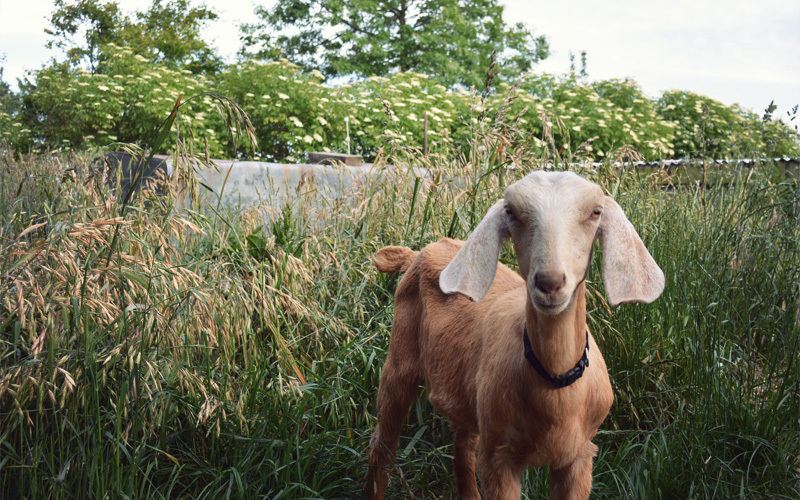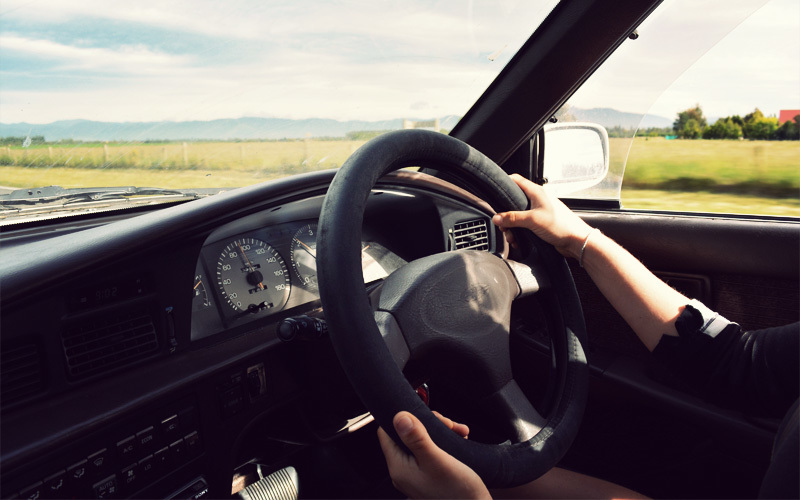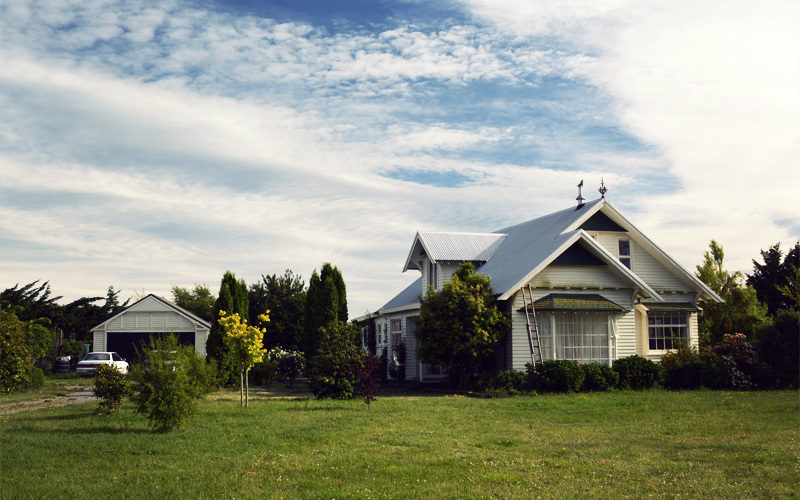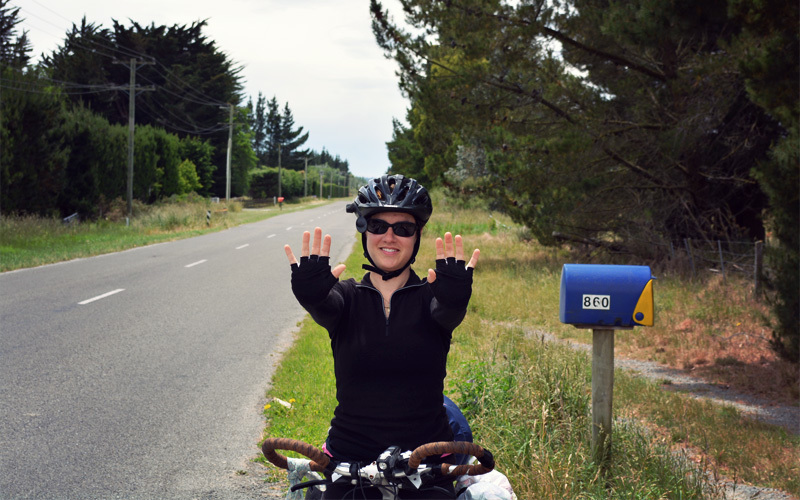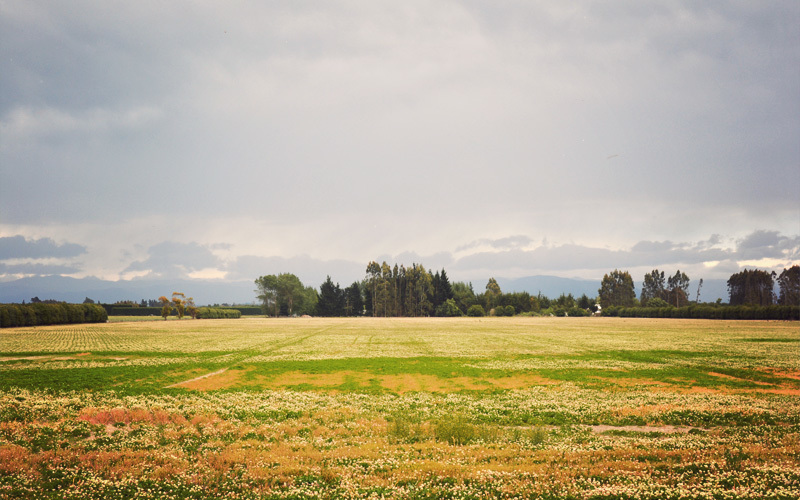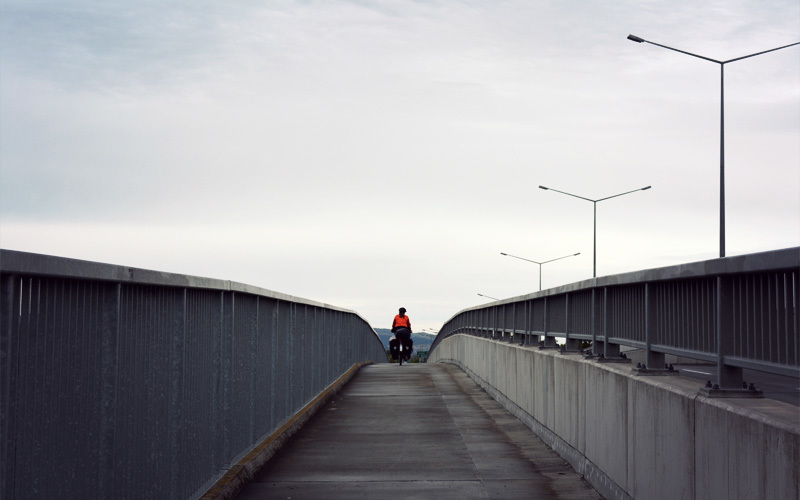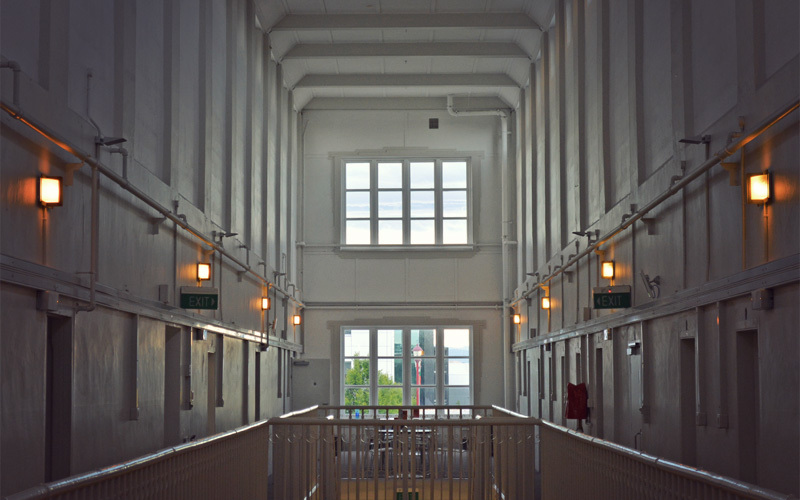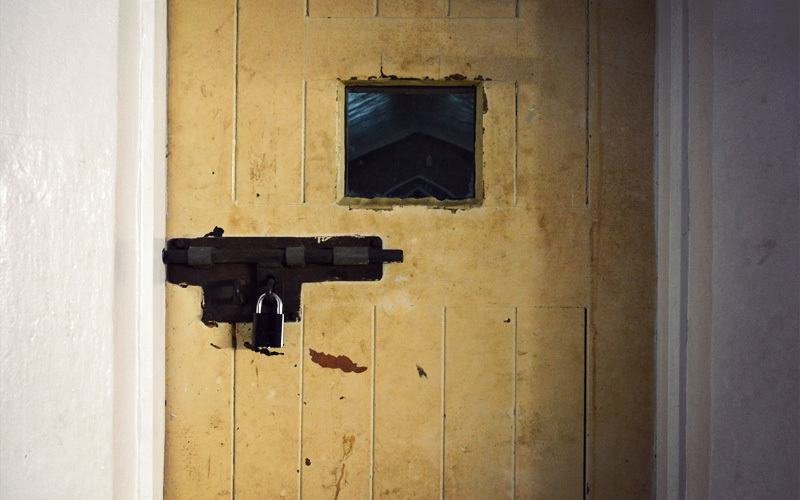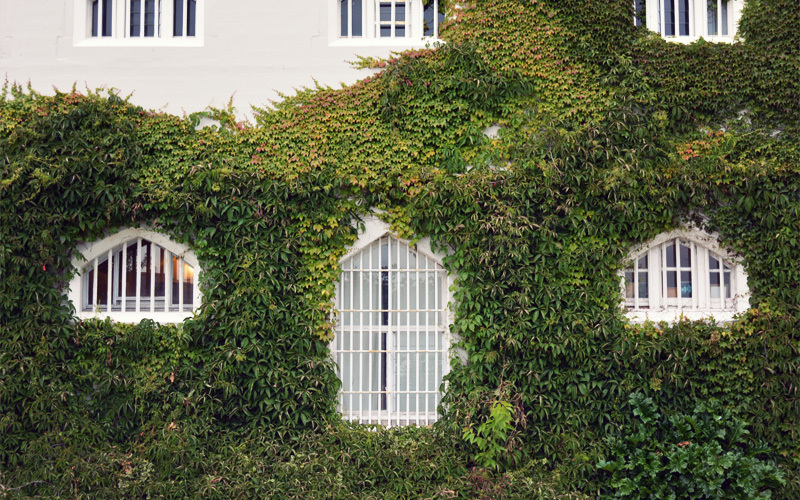December 9, 2014
Day 105: Near Rangiora, NZ to Christchurch, NZ
We have another half day of work to take care of before we say goodbye to the farm. It starts with a visit to the small paddock that holds the two little goats we picked up over the weekend. There we discover that the smaller of the two, the brown and black one, has called out for his mother so loud and so often over the past day and a half that his cries now leave his mouth only as a hoarse, whiny whimper. From there we head over to the main goat barn, where we spend a couple of minutes picking up the older goats' food buckets and refreshing their water, and then another fifteen minutes scratching their heads, rubbing their necks and cheeks, and feeling them bump up against us when they start to become jealous of whoever's getting the most attention.

| Heart | 1 | Comment | 0 | Link |
Later we head to the nearby town of Oxford to pick up some specialized feed for the goats and to drop off one of the family cars at the repair shop. Because Steve is asleep after working a night shift at the hospital where he's a forensic nurse, Kristen gets her first and only chance to drive in New Zealand. We fly at a hundred kilometers per hour down country back roads in what feels like the wrong direction with cold air rushing in through rolled-down windows, passing semi-trucks bouncing us left and right, and the chugging guitar riff of "Smoke on the Water" pumping out of the hollow-sounding speakers of a twenty-year-old Toyota Corona.
Back at the farm we milk the goats and then let them out into their grazing paddock for the last time. Of all of the different things we've done since we arrived on the farm eight days ago, the hours we've spent with the goats have been the most interesting, the most educational, and the most rewarding. Leaving behind their curiosity, their personality quirks, and their gentle affection is going to be just as difficult as fighting furious winds, climbing over long and steep hills, and finding a backpackers that isn't filled with twenty-year-old German guys who enjoy making elaborate sausage-based dinners and walking around wearing nothing but a damp towel.
We're also sad to say goodbye to the family and the dogs and cats, who we have come to know and appreciate so much in such a short amount of time. But we agree that this is the best outcome, that we wouldn't want to come away from the experience feeling ambivalent or ready to move on to something else. We know that we did work that meant something to us, and we did it for and alongside people who treated us well and with generosity and whose company we enjoyed. It's everything we could have hoped for when we rolled up to the farm more than a week ago as strangers, and it's going to be impossible for us to think about New Zealand without remembering the images and the sounds and the smells of our week with a whole bunch of goats and the people who love them in the countryside north of Christchurch.
After a long series of goodbyes and good lucks and travel safes we're off, riding down the gravel driveway on bikes for the first time in eight days. It feels the same as if we'd been away for eight months, as we try to deal with all of the twitches and wobbles and subtle weight imbalances that come with handling a loaded bicycle. In an out-of-character move, our last meaningful day of riding in New Zealand is sunny and warm, with no obvious threat of rain, and the wind stays moderate and always at our backs. We travel far away from traffic, over terrain that's always flat or sloping gently down toward the ocean, in the sort of country where a row of a dozen multicolored mailboxes stands at the junction with every dead-end road. As we roll to the east and then the south, the air is thick with the feeling of bugs that fly into our mouths and stick to our arms, and with the sound of birds that call out from the precisely placed tree lines by the thousands.
As soon as we trade the farms and rural estates for the last thirteen-mile run into the suburbs of Christchurch and then into the city itself, dark clouds have moved in from the northeast with amazing quickness and it starts to rain. We should have known. After all, we're on bicycles in New Zealand, and when we're on bicycles in New Zealand rain can never be far behind, no matter how beautiful the day might have appeared only an hour earlier. But we only half-notice the rain, because the farther we go the more we start to realize that our time in this country is only days away from drawing to a close. At this time next week we'll be creating awkward sweat stains on our shirts in the intense heat and wide open countryside of Australia.
The last few miles into the heart of Christchurch take us past kids running home from class yelling out, "Cookies! Cookies! Cookies!", no fewer than three KFCs (we don't see Brian or Wayne at any of them), and a door store named Knobs & Knockers. We have the chance to notice these things, along with the character of the housing, the feel of the neighborhoods, and the pace of life in this city, because unlike our horrendous ride into Auckland, Christchurch gives us a mix of side streets, cycle paths, and bike lanes. Even as we travel among parents picking up their children from school and thousands of workers making their way home, there are only a handful of moments where cars pass too close or we have to dive off onto the sidewalk to stay safe. It's the easiest approach to a big city that I've ever experienced, and we arrive at our backpackers happy, smiling, hugging each other, and laughing like a pair of complete and total idiots. We feel grateful instead of aggravated and beaten down, and that's reason to celebrate.
And then we end up in jail.
Not that kind of jail, where you have to worry about being violated in the shower. This one was shuttered fifteen years ago and was later bought by private owners, who restored and renovated it and turned it into a hostel. The place was built in 1874, and in the more than a century that followed it was used as a men's prison, a women's prison, and also a military camp. It was the last functioning jail located within the city limits of Christchurch until it closed. Now the main building, with walls that measure almost a foot thick, is home to two floors of private rooms that used to be jail cells. Although the grated metal stairs and floors have been replaced with hardwood, and the greatest danger in the shower is no longer getting shanked but rather having a naked European teenager accidentally walk in on you, a lot of the original details remain. The high ceilings of the cell block area, the tiny doors that lead to who knows where, and the dark and narrow stairwells have the look and feel of an age long since passed. Whenever a plate drops or a phone rings, the noise reverberates throughout the building. Window panes have been added to each cell, but the bars set in front of them remain. The doors to the rooms are made of metal and seem heavy enough to survive a bomb blast.
But a backpackers in New Zealand is still a backpackers in New Zealand, no matter how historical the site or how many bars you put on the windows. This means that cultural stereotypes and awkward moments in the hallways are never far behind. It helps account for the German guy with the huge cowboy hat and backpack who stands too close to Kristen while she checks in, and the Americans talking loudly and without end in the common area about inane things, in the way that Americans are genetically predisposed to do. It also explains the overly tanned French dudes who walk around with their shirts hanging open, smoke weed at the picnic table in front of the entryway, drink Captain Morgan and Coke at one of the tables just inside the front door, and then when all of that's done head back to rooms where French-language reggae blasts at full volume.
The sounds of heavy footsteps, loud Americans, and cracking billiard balls echo up from the main corridor a level below us and continue on late into the night. I'm awake to hear all of them, because my allergies continue to rage, my eyes continue to burn, and the fatigue and frustration that follow along from them make it feel as if the long break from the road never really happened at all.
Today's ride: 28 miles (45 km)
Total: 3,228 miles (5,195 km)
| Rate this entry's writing | Heart | 2 |
| Comment on this entry | Comment | 0 |
